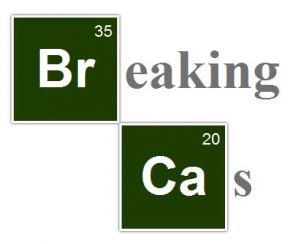Several scientists at the Centro Nacional de Biotecnología of the CSIC (CNB-CSIC) have developed a new online tool that optimises the design of gene editing experiments. This new programme allows the CRISPR/Cas technique to be applied to hundreds of genomes of different eukaryotic organisms –specifically, to the nearly 700 genomes in the ENSEMBL database.
Breaking-Cas, as its creators have dubbed the tool, is presented in a publication in the journal Nucleic Acids Research. This new software, which can be accessed freely and is completely free of charge, is now available online.
"Our platform allows work with hundreds of genomes of distinct eukaryotic organisms. In addition, the user can minimise the possbility of errors due to genome cutting and editing at a site different from the one desired," says Florencio Pazos, one of the authors of the publication.
Furthermore, the authors state that, at difference from other similar programmes, "with Breaking-Cas the characteristics of the nuclease (enzyme) used can be adjusted, because although Cas9 is the most common, there are other possibilities."
Cut and paste as accurately as possible
One of the great strengths of the CRISPR/Cas technique is its accuracy. This is especially important in the event that it would be tested for therapy in humans. In many cases, however, the genome has several areas identical or very similar to those to be edited, which can lead the system to cut and edit at sites other than those desired.
With the Breaking-Cas tool, the number of possible incorrect targets can be minimised. The programme allows the design of a guide RNA that is very specific to the genome segment to be edited. This gRNA is responsible for directing the nuclease and all the machinery of the system to the appropriate place in the genome.
"With the new CRISPR/Cas gene editing technique, a broad array of promising potential therapeutic applications has emerged. However, to ensure they are ethically acceptable and have no security problems, we must maximise the accuracy of the technique to prevent genome cutting and editing anywhere but at the desired locations. This is was our goal when we developed Breaking-Cas," says Juan Carlos Oliveros, another of the authors.
A collaborative job
The software was developed by researcher Florencio Pazos with members of the Bioinformatics for Genomics and Proteomics Service (BioinfoGP) directed by Juan Carlos Oliveros. They also collaborated with Pilar Cubas and Lluis Montoliu, two CNB-CSIC scientists who normally use CRISPR/Cas tools in plants and animals.
According to Montoliu, one of the great advantages of this new software tool is that it can be applied to research in very different organisms. "Our tool adapts? with the same efficiency gene editing experiments in plants, animals or human cells ."
"To date there was no tool so versatile as this for carrying out CRISPR/Cas experiments," concludes Cubas.
- Juan C. Oliveros, Mònica Franch, Daniel Tabas-Madrid, David San-León, Lluis Montoliu, Pilar Cubas and Florencio Pazos. Breaking-Cas: Interactive design of guide RNAs for CRISPR-Cas experiments for ENSEMBL genomes. Nucleic Acids Research 2016 doi: 10.1093/nar/gkw407






